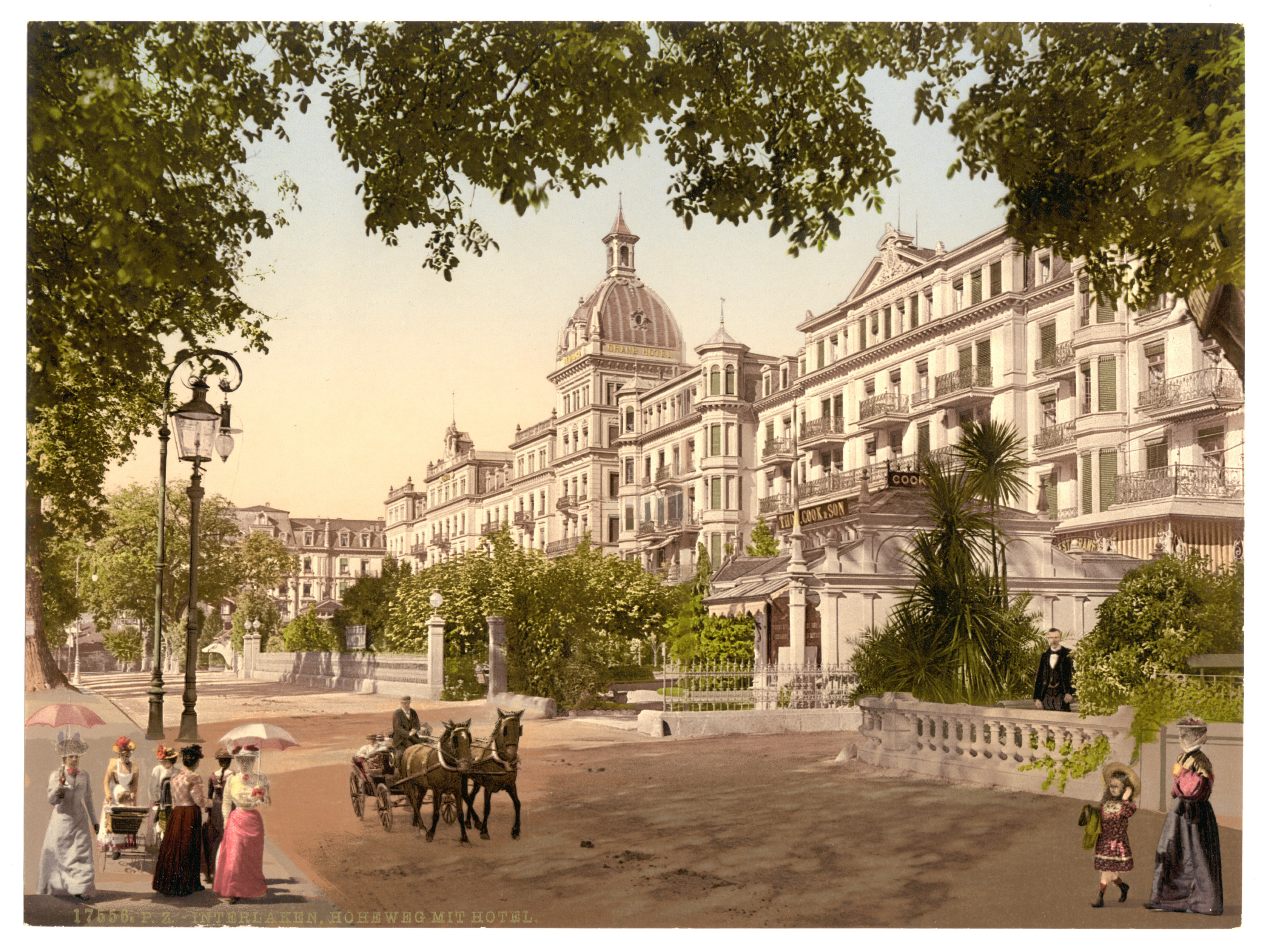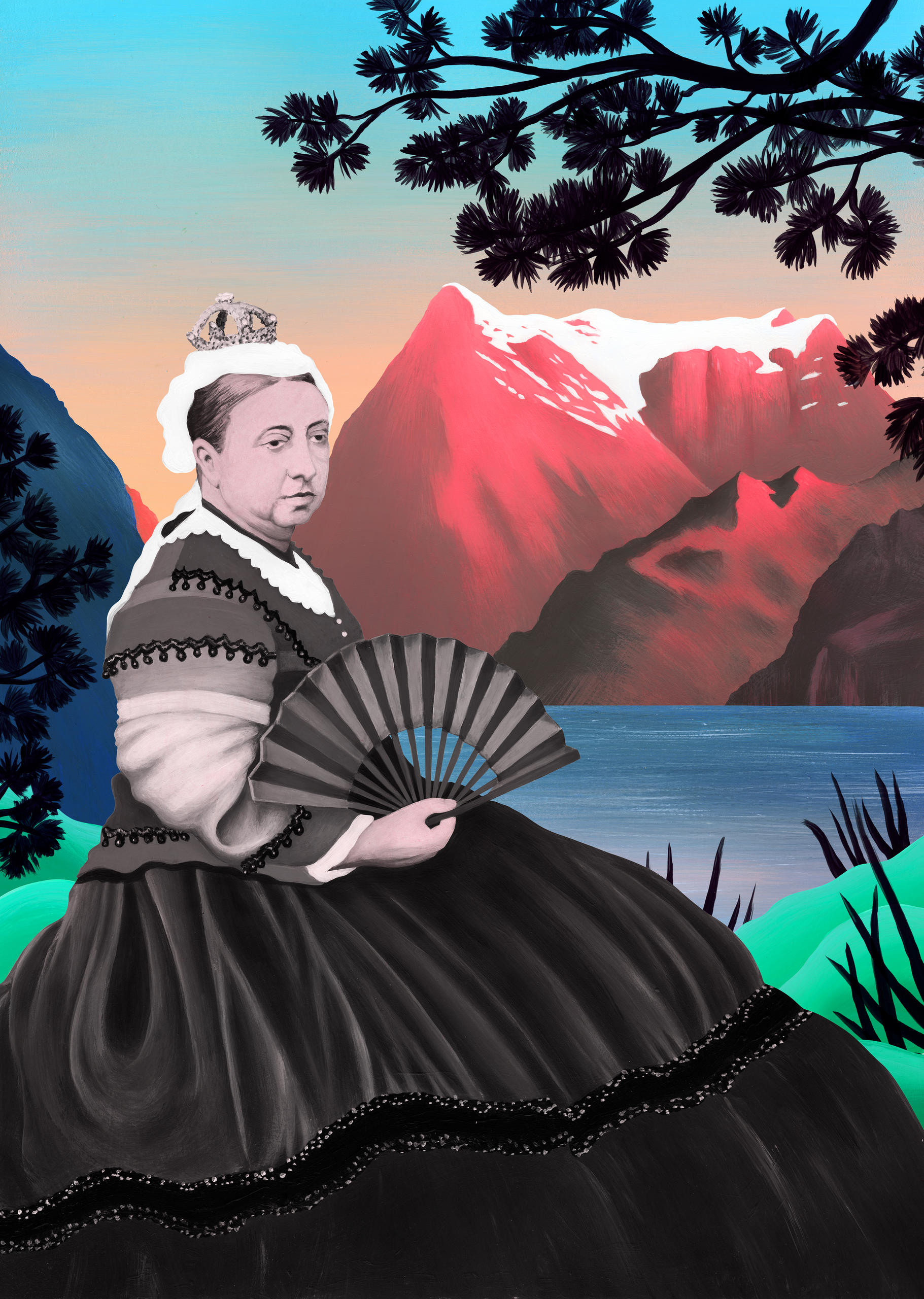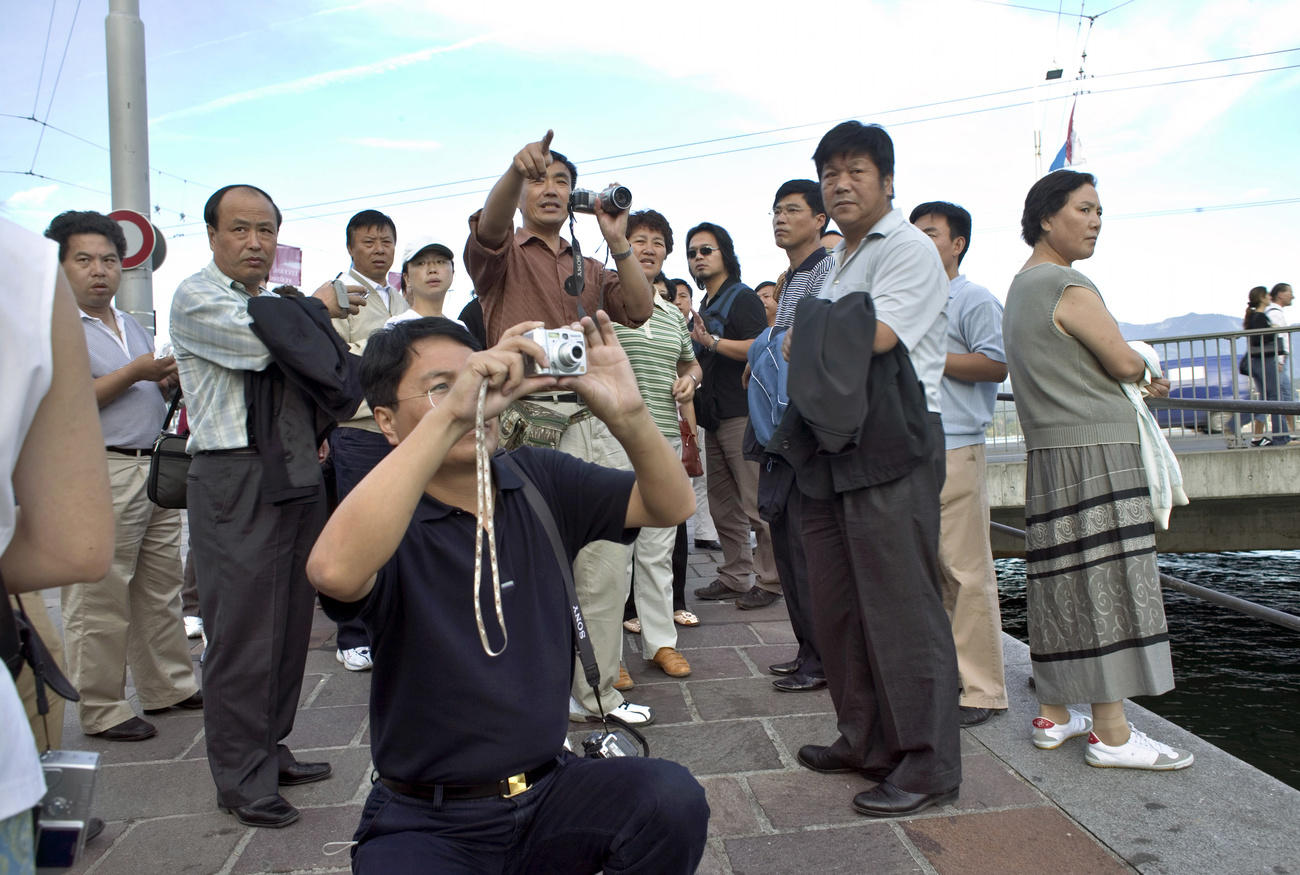Why Thomas Cook’s collapse causes a sentimental sigh in Switzerland

News of the collapse of the world’s oldest travel agency, Thomas Cook, strikes a nostalgic note for many Swiss, who credit the British company with helping create the country’s tourist industry.
When Miss Jemima arrived in Switzerland in 1863 on the first Thomas Cook tour of the Alpine nation, she saw a poor country filled with what she described as beggars, “goitred ogres” and parasites. More than 150 years later, the Swiss Alps are one of the most visited tourist sites in the world.
According to Diccon Bewes, whose 2013 book Slow Train to Switzerland marked the 150th anniversary of the first tour in Switzerland, the so-called “father of modern tourism” Thomas Cook played an important role in promoting Switzerland as a place to visit.
Bewes explained that the image of Switzerland changed quickly “because tourism brought money to exactly the areas that didn’t have it before, the rural areas”.
In his book, Bewes follows the journey of those first British visitors to Switzerland, drawing on the day-to-day diary entries of Miss Jemima. Cook himself accompanied the group as far as Martigny. Bewes notes that the high-point of the trip was watching the sunrise from the top of Mount Rigi.
‘Romantic image’
Speaking on the phone on Monday from New Glarus, Wisconsin, Bewes said it was in fact this trip to Switzerland in 1863 that helped save the Thomas Cook company, founded in 1841, from another bankruptcy.
“The company was on the brink of collapse around the 1860s. Switzerland offered that romantic image, that utopia for Brits to escape from the industrial life back in the UK.”
Thomas Cook had never been to Switzerland before that first visit. But nevertheless, the trip was an instant success.
Diccon Bewes is a member of the swissinfo.ch public council, which oversees the quality of swissinfo.ch’s output.
‘Social revolution’
Cook made travelling to the Alpine nation easy and accessible through packaged tours, but his impact goes beyond simply economic terms. Bewes describes Cook’s travel offer as a kind of “social revolution”, by bringing people into contact with others whom they normally wouldn’t have met at a time when the British didn’t trust foreigners.
“They were seeing all different classes: they’d go into a chalet and have a glass of water with a peasant woman, which they’d never do in England,” he said. “It did give them a new outlook on life.”
As men were conquering the Swiss Alps, Cook’s travel offer was particularly attractive to women. Bewes notes that many of Thomas Cook’s customers were female, because parents would know they were safe within a group, even if they didn’t know any of the other people.
“Cook developed a pioneering spirit of both independent and group travel that transformed mass tourism,” explains Bewes.
End of an era
On a personal level, Bewes expressed sadness at the fate of the company reflecting on the many hours spent with a Thomas Cook archivist travelling the same route as that first tour in 1863. “On a political note, I don’t understand why the government can save the banks but not the world’s oldest travel company.”
It is perhaps ironic that it was a Swiss who announced the end of the company. In a statementExternal link on Monday, Peter Fankhauser, the Swiss CEO of Thomas Cook, said it was a “deeply sad day for the company which pioneered package holidays and made travel possible for millions of people around the world”.
The British government has pledged to get an estimated 150,000 stranded British holidaymakers home in the biggest such repatriation operation since the Second World War. Its codename? Operation Matterhorn.

More
Following the first group tour to Switzerland

In compliance with the JTI standards
More: SWI swissinfo.ch certified by the Journalism Trust Initiative















You can find an overview of ongoing debates with our journalists here . Please join us!
If you want to start a conversation about a topic raised in this article or want to report factual errors, email us at english@swissinfo.ch.